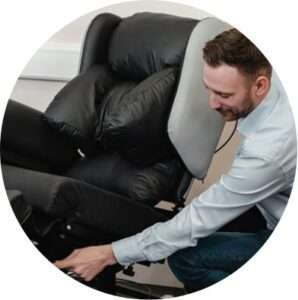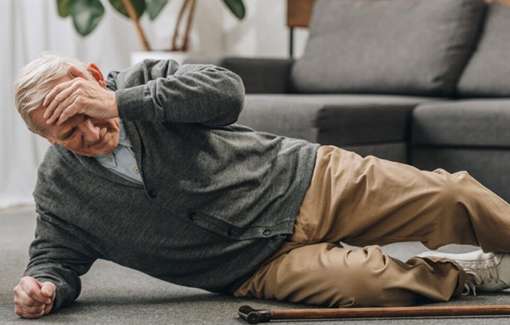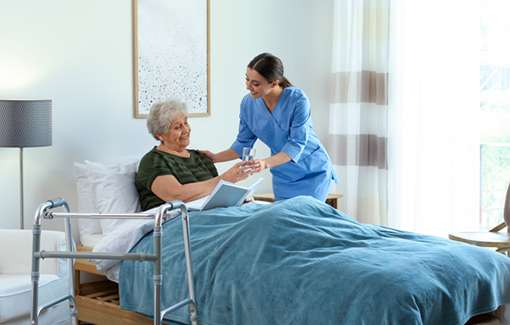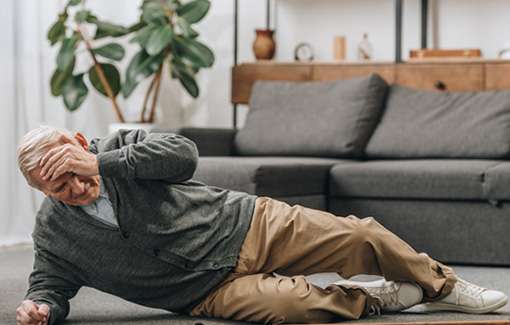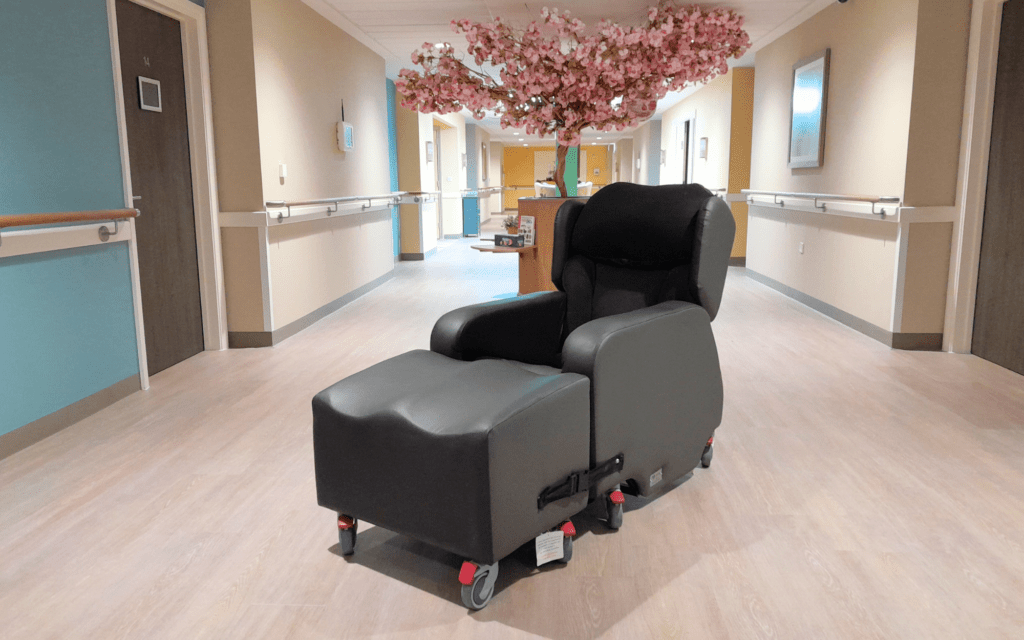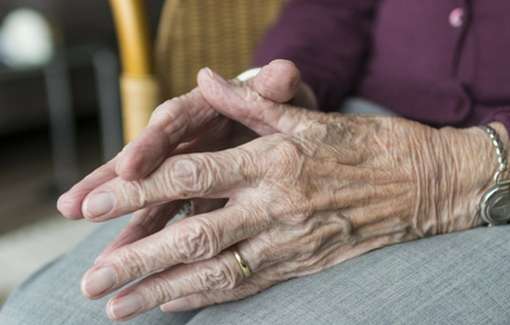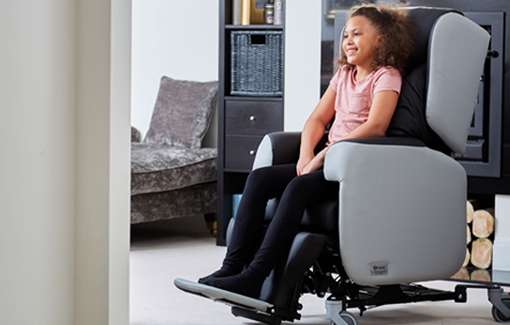It’s a dreaded question — how do you know if you’ve broken a bone? Or in this case, how do you know if you have fractured your hip? We all know how much it hurts to injure yourself, and it can be incredibly difficult to determine whether you’ve broken something if you don’t know the symptoms of a hip fracture.
Bone fractures can present very differently depending on where they are in the body and how much you use that part of your body. For example, you might not suffer if you fracture a bone in your toe because it doesn’t get used a whole lot. But you are more likely to know about it if you fracture something bigger like your wrist, or in this case, your hip.
A hip fracture can sometimes be healed without surgical intervention, but it will often affect your mobility or comfort to some degree. But how do you know if you have fractured your hip? Let’s take a look.
Jump straight to…
Symptoms
Just like any other broken bone, the severity of a hip fracture can make all the difference in what kind of symptoms someone might have. With your hip joint providing so much movement and mobility, you might find that the symptoms are much easier to identify because you will notice that it isn’t working like normal.
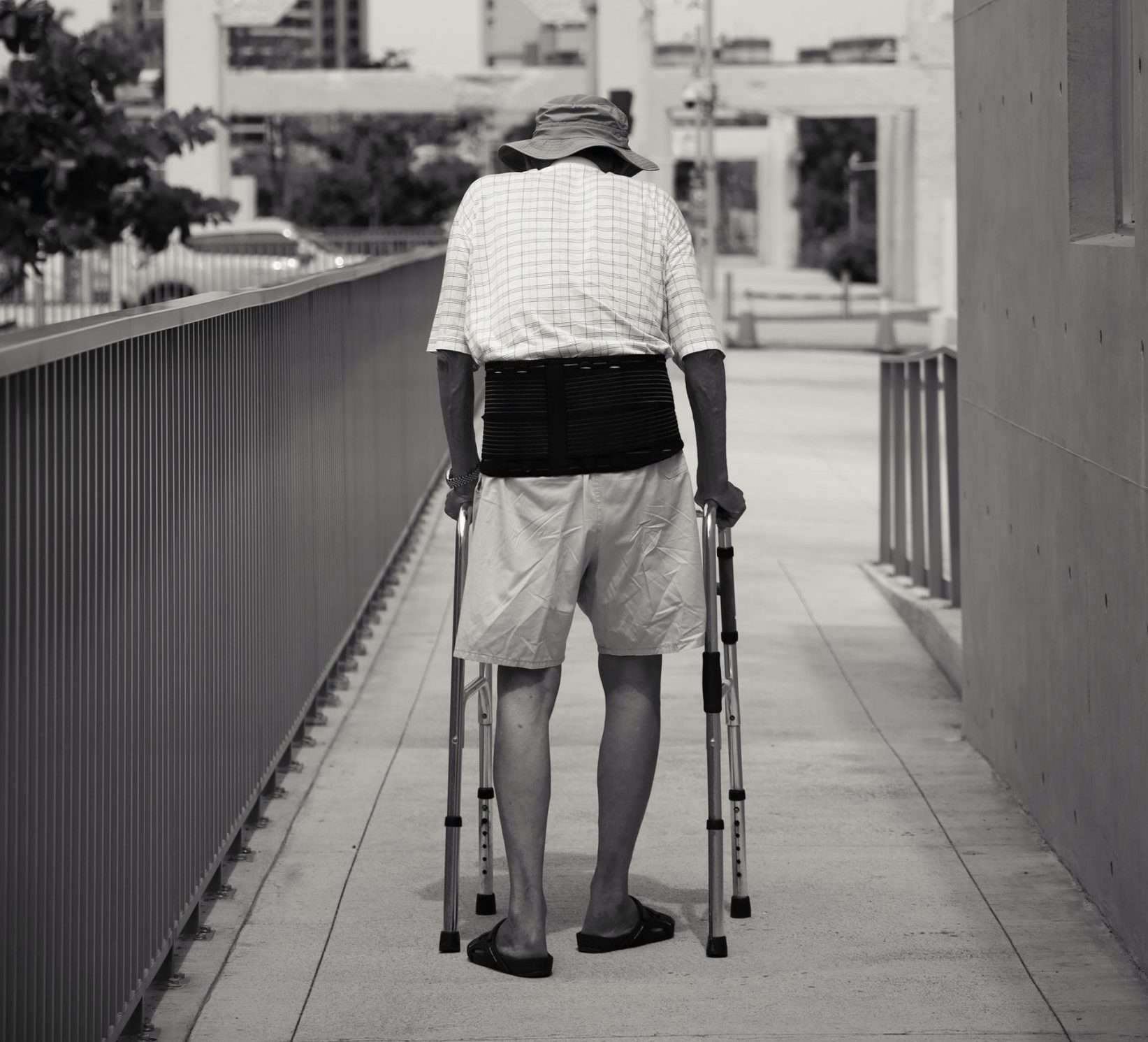
Our hips provide a lot of mobility, so you should be able to tell if something is wrong by how much your movement is affected.
Common bone fracture symptoms
Common symptoms of any bone fracture include pain, not being able to move the affected bone/area, and bruising and swelling. You might not be able to bear any weight on the injured area either. Depending on how bad the fracture is, these symptoms will vary in severity.
For instance, a hairline fracture (which as the name suggest, is very small) will often show some slight bruising and soreness. At the same time, a full bone fracture (where the bone might now be in two or more pieces) will also show bruising and soreness but on a higher level.
Symptoms of a hip fracture
Hip fractures can also present some more specific symptoms. With the hip being the main joint between the torso and the leg, a fracture can cause more complex symptoms that will affect the entire leg rather than just a localised area.
Symptoms of a hip fracture can also include the injured leg appearing to be shorter than the other, or the injured leg might turn outwards. The hip itself could appear to be rotated or twisted, or just generally look awkward in comparison to usual. These symptoms may vary depending on what type of hip fracture it is — you can read more on different hip fractures here.
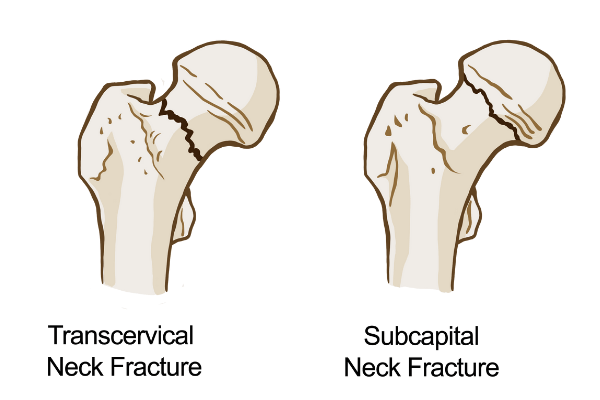
These are a couple of different types of hip fractures. Your symptoms may vary depending on how severe the bone is fractured, or whereabouts the fracture is.
It is important to remember that even with a hip fracture, you may still be able to bear weight on the affected leg, but this doesn’t mean that it will not need medical attention. If you believe you have fractured your hip, you will need to go to the hospital as soon as possible.
How does a hip fracture affect you?
Again, it very much depends on the severity of the breakage, but hip fractures can have more long-term effects on your mobility and independence. Nastier hip fractures can even cause blood clots in your legs or lungs, which is why it’s so important to seek medical attention.
Due to the longer recovery time needed for some hip fractures, you could also be more at risk of developing bedsores or urinary tract infections. As with any bone break, you may also lose muscle mass in the area which would make you more susceptible to falls or further injuries.
You may need some physiotherapy to rebuild the muscle and mobility in your hip, or surgery could be required to fix the joint back together permanently. Either way, you shouldn’t be putting weight on your hip or the injured leg until the bone has healed enough.
How to avoid hip fractures
The best way of avoiding a hip fracture in the first place is to minimise your risk of falls wherever possible. You may also want to invest in protection if you or your loved one is more prone to trips and slips.
In that case, we would recommend the Hip’Guard airbag belt. This unique belt contains two airbags that will inflate and protect your hip joints as soon as it senses that you are falling (the whole thing takes less than a second to inflate)!

The Hip’Guard airbag belt has been designed to cushion the hip joint whilst falling, protecting the wearer from the brunt of the impact.
For more tips and advice on how to avoid hip fractures, check out this blog post.
Summary
The symptoms of a hip fracture aren’t hugely different from any other bone fracture, but it’s very important to seek medical advice as soon as possible. With the hip being such an integral joint, a fracture could seriously inhibit your mobility or even your blood supply depending on how bad the break is.
Look for things like bruising, swelling, and any unusual rotation or twisting in the joint. Don’t try and put any weight on your leg because it could make the fracture worse. It’s not always easy to know if you have fractured your hip, but you’ll definitely want a doctor to check it out regardless to ensure that your recovery can go as smoothly as possible.



